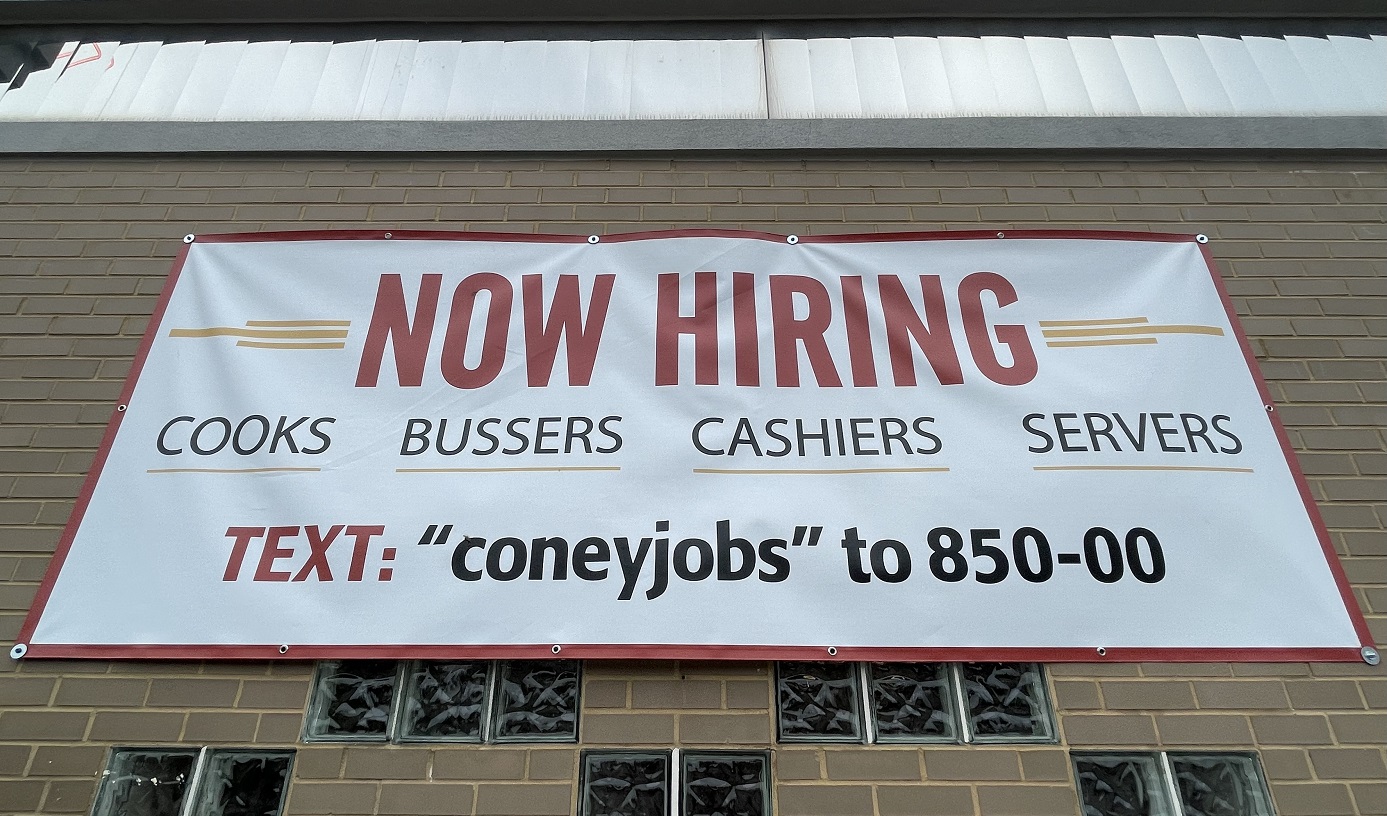To Fix Labor Shortage, the Service Industry Needs to Start Humanizing Workers, Restaurant Owner Says
Sandy Levine of Chartreuse Kitchen & Cocktails in Midtown Detroit says treating employees as people instead of machines will improve the industry as a whole, and likely bring people back to work.

Businesses across Michigan say they’re having a tough time finding enough workers.
As part of the weekly series MichMash, Cheyna Roth and Jake Neher spoke with a Detroit restaurant owner who says employers need to stop dehumanizing their workers if they want to staff up.
The current labor shortage has been well documented in Michigan and across the United States as the COVID-19 pandemic starts to recede. Some have called the shortage an opportunity to reimagine work in America, but others are not so optimistic.
Subscribe to MichMash on iTunes, Spotify, Google Podcasts, NPR One or wherever you get your podcasts.
Sandy Levine, partner in the Midtown Detroit restaurant Chartreuse Kitchen & Cocktails, says this has been an “incredibly challenging year and a half” and he doesn’t see the challenges ending soon.
“I think, you know, there were staffing shortages, even before COVID,” he says. “But a lot of restaurant industry workers, I think, had been looking for an excuse to leave the industry. And, COVID, you know, provided that and, much more of an excuse to just leave for good.”
Levine says his restaurant’s turnover has been relatively low compared to others, which he attributes to Chartreuse’s efforts to do better by its staff.
He says while the service industry is moving in the right direction, for a long time it did not treat people like human beings.
“People are leaving the industry because it’s not a great industry to work in as a whole.” –Sandy Levine, Chartreuse Kitchen & Cocktails
“Obviously, there were and are exceptions to that,” says Levine. “And those are becoming more numerous. But, the restaurants are sometimes seen as machines with a whole bunch of working parts. Which is a fair comparison, I guess, until you neglect to recognize those parts as actual human beings with livelihoods and families and needs. I think, just understanding that, that simple thing is, unfortunately, something that a lot of restaurant owners, managers and patrons haven’t recognized in the past.”
Restaurants don’t have a big profit margin, so flexibility can be tricky even in the best-case scenario, Levine says. Restaurants rely on the tipping system in order for their employees to make a living wage, which is complicated when they are short-handed or, on the other end of the spectrum, aren’t getting the customers they need.
That’s just for servers. He says back-of-the-house workers need to be paid more, and the industry is “not paying them near what we would like to be paying them.”

Levine would like to see everyone in the industry be able to make more money, but he said as long as the industry continues to treat them like machines, they won’t get there. But treating people as people instead of machines will improve the industry as a whole, and likely bring people back to work, he says.
“We’ve always prided ourselves on just treating people with humanity, and like peers, and not like, anybody is better than anybody else, or anybody’s job is above anybody else, or anything like that,” he says.
“And we’ve not lost very many people, our turnover is very low, but we just we still just need more people.”
“People are leaving the industry because it’s not a great industry to work in as a whole,” Levine continues. “And until more owners and managers can step up and start treating people the way that they should, that people deserve to be treated, or at least have a right to be treated, nothing is going to be stabilized, I don’t think.”
Trusted, accurate, up-to-date
WDET is here to keep you informed on essential information, news and resources related to COVID-19.
This is a stressful, insecure time for many. So it’s more important than ever for you, our listeners and readers, who are able to donate to keep supporting WDET’s mission. Please make a gift today.

